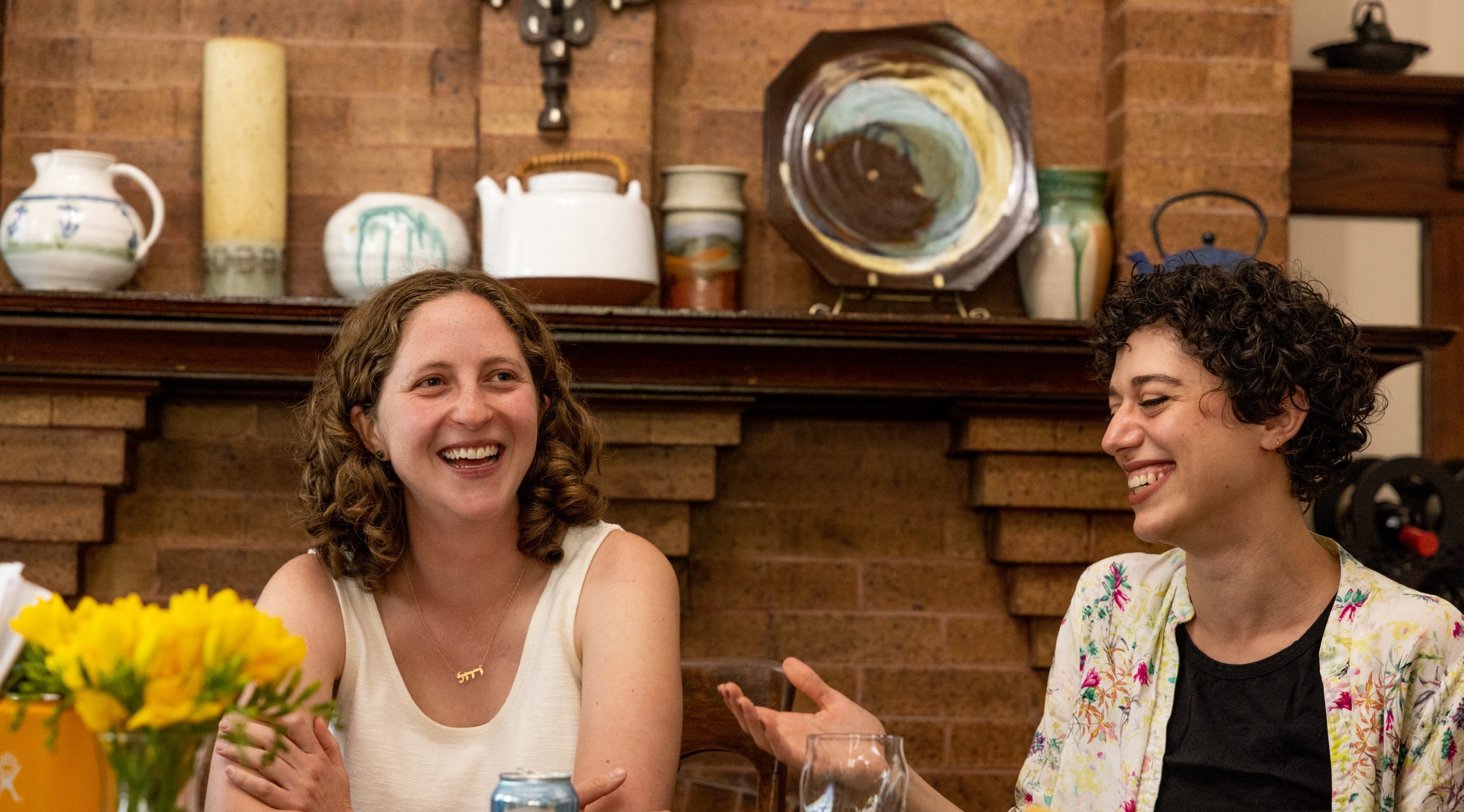
This coming Saturday night marks the fifth yahrtzeit, or death anniversary, of my father, Lou Feigelson z”l (pictured above with my mother during the dancing at our wedding; it’s a favorite picture.)
While professionally my Dad made his living in real estate and property management in our hometown of Ann Arbor, at his core he was a teacher. Like so many children of Jewish immigrants from eastern Europe in the mid-twentieth century, he was a product of public schools who commuted to the local public university (Wayne State). He was a Boy Scout and went to summer camp, which expanded his world beyond the Detroit of his youth (it was at a Fresh Air camp, Camp Tamarack, that he met my mom). And I think those two forces, school and camp, always remained, in his mind and heart, places and ideas and forces towards which he felt enormous gratitude, responsibility, and joy.
As I’ve mentioned before in this space, my Dad was our Boy Scout troop’s scoutmaster. One of the things I remember learning from him at an early age was how to run a patrol or troop meeting: having an activity for the scouts when they showed up that set the theme for the learning to take place, transitioning into an opening ritual, running a more identifiable period of teaching-and-learning, creating an opportunity for them to apply their newly-acquired knowledge in a fun and engaging way, review, recognition, closing. I probably learned that from him at age 11 or 12. It was only years later, in my own work as an educator (my brothers are attorneys; one of us had to go into the family business) that I came to realize that Dad had taught me what teachers would recognize as a “set induction.” He was teaching me to teach.
There is a poignancy, of course, to marking my father’s yahrtzeit on the third day of Hanukkah. The holiday is now, and for the rest of my life will be, bound up with remembering him. Which is frankly lovely, as Hanukkah was a holiday my father took seriously. Every morning he would clean out the previous night’s wax and get the candles ready for that evening so that they would be ready for us, as though they were reminding us all day, “It’s Hanukkah!” as we passed by them. Lighting the candles was a serious mitzvah for him.
And every year Hanukkah, and now my father’s yahrtzeit, comes as we read the stories of Joseph, a child separated from his father. While, thankfully, the circumstances were dramatically different (and my older brothers are good guys), like many other young people, I left home at age 18, about the same age as Joseph was sold into captivity in Egypt. And like many others, including Joseph, the years of my young adulthood were marked by looking for mentors and surrogate parental figures. (For Joseph, Potiphar and ultimately Pharaoh are two such people; mine weren’t quite so dramatic, but they were very important people in my life.)
The writer Sharon Daloz Parks, who was an important mentor to me as a young professional, wrote an illuminating book on the period of young adult life called Big Questions, Worthy Dreams. The book explores what Parks sees as the key task of young adulthood, namely to “become fittingly at home in the universe, moving from authority-bound forms of meaning-making anchored in conventional assumed community, through the wilderness of counterdependence and unqualified relativism, to a committed, inner-dependent mode of composing meaning.” This then points towards “a still more mature faith–an engaged wisdom grounded in the conviction of interdependence, seeking communion with those who are profoundly other than the self.”
I think that’s one way we can understand the story of Joseph, who, through a long period of suffering and searching and journeying, moves from a sheltered, privileged, even arrogant posture of his youth into a more mature, adult posture as an adult. He acquires a hard-won wisdom. Like his father and uncle, about whom I wrote last week, Joseph, like his brothers, grows up. And in that process of maturation, he and his brothers become shaped into characters who ultimately seem to understand their interdependence, the inextricability of their lives together, their mutual responsibility toward one another, as best evidenced, perhaps, in Judah’s poignant line describing the relationship between Benjamin and Jacob: “Their souls are bound up together” (Gen. 44:30). In this, they echo a lesson of Hanukkah, which invites us to recognize our mutuality and interdependence, to learn to kindle fire responsibly, to reflect and nurture the lights in our lives and the world.
In the last five years, as Hanukkah has become bound up with remembering the death and life of my father–as the yahrtzeit candle flickers and glows amidst the Hanukkah lights on the third night–the holiday has become richer and deeper for me. It’s easy for Hanukkah to be a children’s holiday, and thank God for that. But like all our holidays, its practices are ones that can help us grow bigger and wiser. This Hanukkah, when so many of us so deeply need it, may we kindle our lights within and without, may we deepen in both joy and wisdom, and may our practice lead to the light of redemption and peace.

